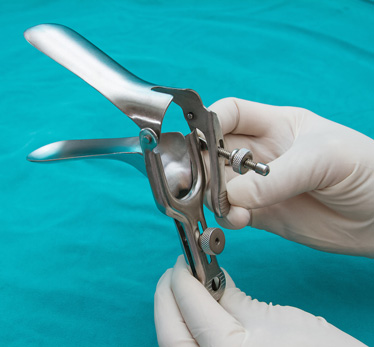One of the best things women can do to ensure their health is to get frequent Pap smear tests. A Pap smear is a brief medical procedure that checks for overall cervical health.
Every year, approximately 12,000 women will be diagnosed with cervical cancer and 4,000 women die from it. These tragic statistics are even more regrettable because cervical cancer is an essentially preventable disease. Pap smears are the only way to detect precancerous and cancerous cells in the cervix, but early detection has very high cure rates. A Pap smear is the main tool for reducing women’s risk of developing cervical cancer.
Not Your Mother’s Pap Smear: New Guidelines
Previous medical guidelines advised women get a Pap smear test every year. This was before the link between cervical cancer and the Human Papilloma Virus (HPV) was established. Doctors now know that certain strains of HPV are detected in almost all types of cervical cancers and co-testing for HPV combined with a Pap smear has allowed the guidelines to be modified.
The American Cancer Society recommends the following general guidelines for the prevention and early detection of cervical cancer:
- Begin screening at age 21
- Stop screening for low-risk women at age 65
- Women age 21-30 should have a Pap test every three years
- Women age 30-65: Pap test every three years or co-testing (Pap smear and HPV testing) every five years
These are general guidelines and people in high risk groups will need to consult with their gynecologists to determine how often they should receive Pap smears and HPV screening. High-risk groups include people with a history of abnormal Pap smears, people who have contracted HPV or Chlamydia, or who have a weakened immune system.
The Pap Smear Test
 A Pap smear test, typically part of an annual well-woman exam, is a medical procedure that checks the cervix for precancerous or cancerous cells. It is a quick test and only mildly uncomfortable. Some women may want to forgo a Pap smear because it is, by its very nature, personally invasive. However, the benefits vastly outweigh the momentary discomfort.
A Pap smear test, typically part of an annual well-woman exam, is a medical procedure that checks the cervix for precancerous or cancerous cells. It is a quick test and only mildly uncomfortable. Some women may want to forgo a Pap smear because it is, by its very nature, personally invasive. However, the benefits vastly outweigh the momentary discomfort.
During a pap smear, a health care provider examines the cervix for signs of sexually transmitted diseases (STDs), unusual discharge, and irritation. A sample of the cervical cells will also be taken and tested.
A Pap smear is a crucial part of managing your personal health. If you are nervous about the test, talk to your health care provider. The physicians and staff at Kansas City ObGyn want to make sure that our patients are always comfortable and at ease in our care. Chaperones are available upon request, or if you would prefer to be accompanied by a friend or family member, that can be arranged.
Abnormal Pap Smear Results
If the test of the cell sample taken during the Pap smear presents with abnormalities, further testing and possible treatment will be required. There are several different types of abnormal result, and the diagnosis depends on the different kinds of cells detected in the exam.

The following definitions are from the American College of Obstetricians and Gynecologists:
- Atypical Squamous Cells of Undetermined Significance (ASC-US) indicates changes in cervical cells that are usually an indication of an HPV infection
- Low-grade Squamous Intraepithelial Lesion (LSIL)—indicates that changes in the cervical cells are mildly abnormal
- High-grade Squamous Intraepithelial Lesion (HSIL)—HSIL indicates more serious changes in the cervix cells and is often a sign of cancer or precancer
- Atypical Squamous Cells, Cannot Exclude HSIL (ASC-H)—ASC-H indicates changes in the cervical cells that raise the risk for possible HSIL.
- Atypical glandular cells (AGC)—indicates changes in glandular cells (cells that make up the thin tissue covering the cervix) and raise the risk of cancer and precancer
In the event of an abnormal Pap smear result, a repeat test and HPV screening will usually be ordered, in addition to a colposcopy. A colposcopy is a procedure that examines the cervix, vulva and vagina more closely than a general pelvic exam. Depending upon the medical concern, a biopsy to obtain tissue samples may be performed as part of the colposcopy.
If result of the Pap test is particularly severe, immediate treatment, including possible surgery, may be necessary.
Frequent Screening for Cancer Prevention
Cervical cancer doesn’t have to be something you fear. It is a preventable and highly treatable disease, but if untreated it can have devastating results. The best way to prevent cervical cancer is to have regular Pap smears and HPV screening. Empower yourself to protect your health by following the cervical health screening guidelines.
If you have any questions about your Pap smear results or would like to schedule a Pap smear screening, please contact Kansas City ObGyn today at This email address is being protected from spambots. You need JavaScript enabled to view it. or 913-948-9636.






